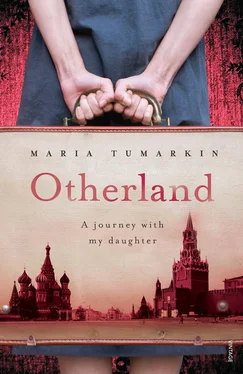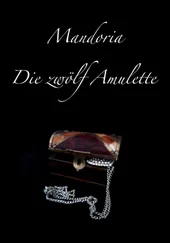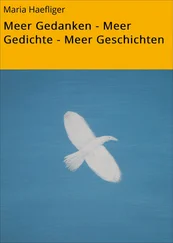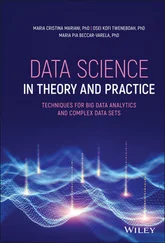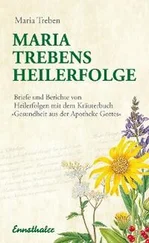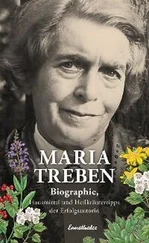Dear Diary,
When the caring and kind train attendant warned us about the Belarusian Border Control, she said, ‘They were like the Nazis.’ Fascists, she called them. Well, can I add a few words to that analogy – words like heartless and inhumane. The guy, Ivan Petrovich Sidorov, who kicked us off the train had an immense case of Inhumanity.
Billie is big on allusions to Fascists, especially after the Secret Life of Adolf Hitler documentary, which I let her watch in its entirety except for the bit about Hitler’s predilection for S&M, although I cannot quite tell you why being peed on by one’s niece is somehow more worthy of an MA rating than masterminding our people’s genocide.
Ivan Petrovich Sidorov (not his real name), precisely the type of dedicated border-control professional our train attendant warned us about, is a study in breviloquence. ‘It looks like we are going nowhere,’ he says after a brief skim of our passports. The use of ‘we’ instead of ‘you’ is a calculated insult. Ivan Petrovich is not going anywhere because he works here, at Teryuha railway border crossing. We are not going anywhere because he is about to throw us off the train.
I have to talk really fast now. I have the smallest window of opportunity imaginable to convince this guy that we are not some malicious transit-visa cheats but good girls from the faraway land of Australia (yes, it does exist), who simply were not informed by the relevant authorities and are, therefore, plainly not guilty as charged. I try to sound both confident and unambiguously respectful, but no matter. With this guy we do not stand a chance. ‘And yet,’ he replies mockingly to my tirade about how mere mortals like ourselves (mere foreign mortals, to boot) could not have possibly known. Sidorov quickly tires of my attempts to reason. ‘Your luggage to the door,’ he pronounces in a voice that says the conversation is closed. From now on we are in a no-man’s-land of monologues and unilateral actions. ‘Young man,’ I shout, ‘Comrade, Mister Mayor.’ ‘And nonetheless,’ Sidorov barks back, walking away with our dark-blue passports in his hand.
We will meet Sidorov again, of course: after all, he has marched away with our lives in his hands. But first, dear discombobulated reader, I should probably take you back to the beginning, which is to say, Ukraine circa 1989.
In our day Europeans have been hurled out of their biographies, like balls from the pockets of billiard tables.
Osip Mandelstam, writing in the 1920s
HOW DO YOU LEAVE if you are too grown-up to be cargo but not grown-up enough to cast a real vote? I am fifteen and have never once been out of the Soviet Union; now, together with my parents and my older sister, I am preparing to leave for good. So I sit like Alice in a pool of tears trying not to drown and muttering to myself, ‘I never was so small as this before, never!’ I sit and force myself to think packing thoughts, all of which boil down to one simple question: which bits of my life will make the cut? Books, letters, clothing, linen – every gram matters. It is like Olympic swimming, where male competitors shave off their body hair to make themselves a tenth of a second more aerodynamic. Migration, I have learned, has its own economies of scale. You are forced to think very big (America? Australia? Israel?) and, simultaneously, very small (towels or another blanket? A sandwich-sized volume of Akhmatova or Borges?). The very big is, of course, something even my parents lack the processing apparatus for, because nothing they have ever known has been this final or mind-numbingly irreversible. We are burning our bridges and then smearing ourselves in the ash.
It is 1989, and I am about to embark on a journey that feels like part wild adventure and part deportation, and so I leave in a daze, one foot kicking and the other hurrying to the door. I leave thinking that it cannot be true. Are you telling me I might never see my best friend again, the one who feels closer than skin? Bullshit. Does it really mean that I will close my eyes and when I open them, everything will be gone – this light-blue balcony; this fold-out couch in the lounge room, on which I sleep with my back turned to the room when films not for my eyes are shown on the television; and this five-storey Stalinera building in which we live? (Stalin-era, please note, here refers to the coveted architecture of high ceilings, as opposed to the measly proportions of Khrushchev’s infamous ‘shoeboxes’.) And gone too this corner near my home in Kharkov where two streets named after nineteenth-century authors with diametrically opposed fates run into each other – one honouring the proto-revolutionary Nikolay Chernyshevsky, whom Lenin counted among his defining influences, and the other, much shorter street, named for Vsevolod Garshin, a writer more famous for following in his father’s suicidal footsteps than for the short stories he produced. How such a street name survived in a country where suicide was as entirely non-existent as homosexuality in Iran is a mystery; but there it is, about to stop being our address, about to become the hollowest of holograms.
My sister, Inna, eight years my senior, seems to be coping much better than I – than all of us, in fact. She is decisive and determined and insists on being practical: we need money; we need things to wear (we are not going to the West in these clothes); we need to get seriously and quickly organised (no second chances for us).
Inna does not let herself waver, at least I cannot see in her any traces of doubt or fear. I am too self-absorbed, and perhaps too young as well, to recognise the value of her fearlessness and composure. My sister does not lose her nerve in the face of what our family is about to plunge into. If anything, she seems fully mobilised, taut as a bowstring.
It is 1989, the year countless journalists and historians will dub the most momentous since World War II. My family is leaving a month after the Berlin Wall comes down, right at the beginning of the end of the Cold War. We are leaving soon after a national security briefing from the US State Department has spoken of America moving ‘beyond containment’ in its dealings with the Soviet Union, anticipating the end of the bipolar world and the ascent of the United States as the last superpower.
In the wake of the Soviet invasion of Afghanistan in 1979, and the international opprobrium that followed, the Soviet government had effectively banned emigration. Under Mikhail Gorbachev’s presidency, the ban was lifted, but this does not make leaving feel easier, feel any less like passing through the eye of a needle; perhaps the opposite. In the final months of 1989, we find ourselves in a permanent state of preternatural suspense and suspension: Will we be granted visas? Will we be able to buy tickets? (In June 1989 only tickets for travel in the following year could be purchased.) Will we be able to surrender our apartment to the State? (If not, we are not free to leave.) And, if we finally make it to the airport, will the customs control there ‘liberate’ us from most of the things we care about? Most crucially, my mum’s security clearance, through her job as an electrical engineer for a company with close ties to the country’s defence industry, means that she has access to classified information and is therefore not allowed any contact with foreigners. Citizens in her position are often banned from leaving the country, so will they stop us from going? We hold our collective breath waiting for some terrible last-minute hitch, but borders are already blowing in the wind and Gorbachev is talking about nations’ rights to self-determination. His words make millions across the Eastern bloc pinch themselves in disbelief.
Читать дальше
